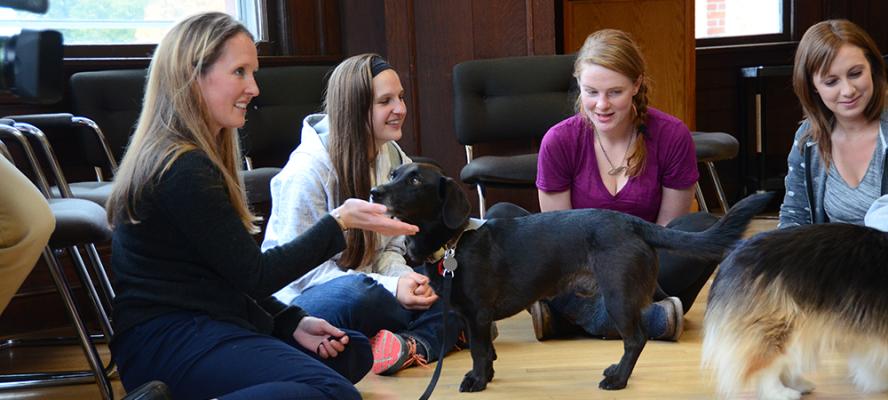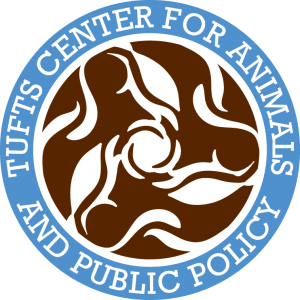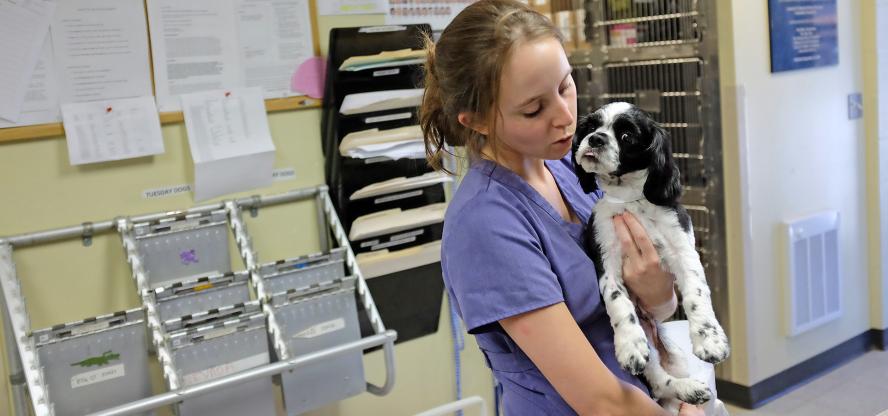Center for Animals and Public Policy
Initiating Thought—Inspiring Action
The center’s research, teaching, and service activities are organized around four inter-related areas of focus:
Companion animals deserve access to veterinary care and optimal mental and physical well-being. Through scholarly research and training the next generation of leaders, CAPP supports the animal welfare and veterinary professions in meeting these goals for pet owners in diverse communities.
We have powerful and complex social bonds with the companion animals that share our homes. At CAPP, we apply a wide range of scientific methods to studying the psychology of human-animal interaction, with the goal of improving the relationships between people and animals through evidence-based programs and policies.
The sprawling human footprint across the globe is forcing us to choose whether we try to control nature or partner with it. Where people and wildlife meet, CAPP explores how people can live with nature through creating policies and practices that promote mutual accommodation and appreciation.
Animals are used by people for food and labor, for education, entertainment, and research. Scientific understanding about the lives and welfare of animals is growing, as is public awareness of the linkages between animal use, human well-being, and the health of the planet.
Educating and Informing
Educating veterinary students about the underlying concept of “One Health” creates opportunities for graduates to make a difference for animals and society whether they work in private practice, the business world, or public service.
The M.S. in Animals and Public Policy (MAPP) is an intensive, 12-to-16-month graduate degree program that focuses on human-animal relationships and their implications for policy and community action.
Educating veterinary students about the link between animal and human well-being and the underlying concept of “One Health” creates opportunities for graduates to make a difference for animals and society whether they work in private practice, the business world, or public service.
Animal Matters Series
The Center for Animals and Public Policy offers a venue for balanced, informed and respectful discussion of the difficult issues in animal ethics, policy and practice that face the veterinary profession and society. The Center's flagship speaker series is "Animal Matters." Presented by distinguished scientists, animal professionals, ethicists, advocates, and others, these lunchtime talks cover topics like living with urban wildlife, understanding the needs of dogs and horses, and protecting rhinos and elephants from poaching.
Email us at capp@tufts.edu if you'd like to be notified of upcoming seminars. You can also follow us on Facebook here.
The Reporting Animal Cruelty: The Role of the Veterinarian manual for Massachusetts is provided here for establishing protocols for identifying and reporting suspected animal cruelty in Massachusetts. The manual is possible due to the collaborative efforts of Animal Folks, the Animal Rescue League of Boston, and Cummings School of Veterinary Medicine at Tufts University, with funding by these organizations and the American Society for the Prevention of Cruelty to Animals (ASPCA).
Warning – the manual includes some graphic images of abused animals and is not intended to be shared with the general public.
Impacting Care
Service to the community is integral to many of the center’s initiatives in the form of support, education, and care. Service and outreach programs are tied together through the Animals in the Community program at CAPP.
Support
Many of the activities conducted through the Center for Animals and Public Policy are made possible by the generous support of Elizabeth A. Lawrence Endowed Fund.
Contact
For additional information or questions about the Center for Animals and Public Policy program, please contact:
Center for Animals and Public Policy
Cummings School of Veterinary Medicine at Tufts University
200 Westboro Road
North Grafton, MA 01536
Phone: (508) 839-7991
capp@tufts.edu




